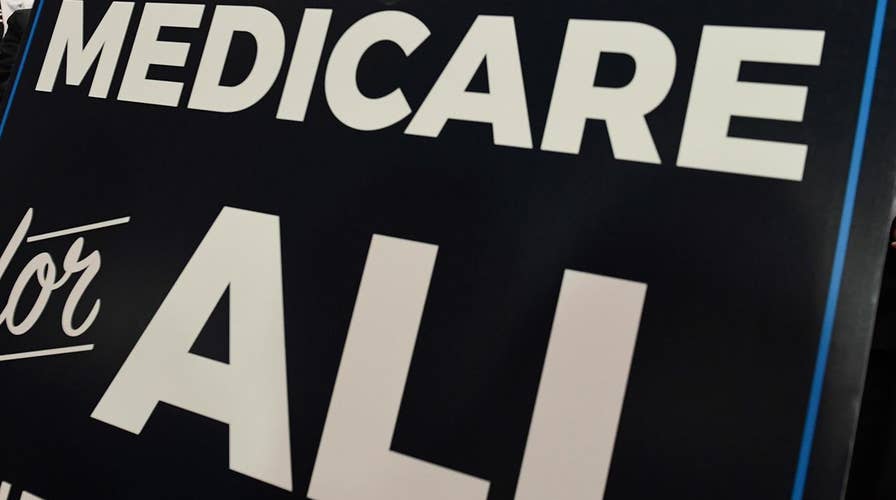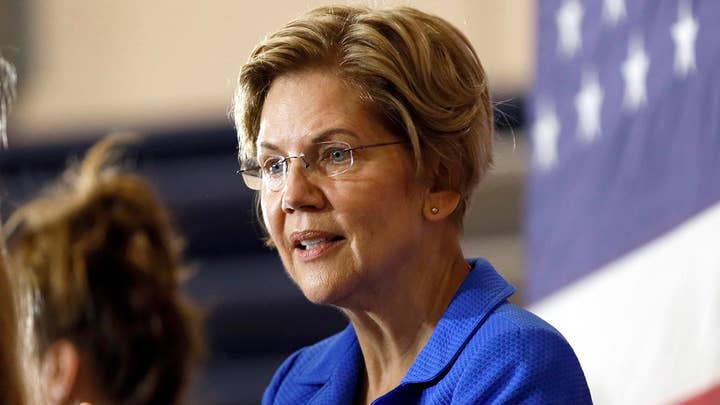'Medicare-for-all' estimated to cost $34 trillion
Wyoming Republican Sen. John Barrasso says it would be impossible to implement 'Medicare-for-All' without raising taxes on the middle class.
Democrats' "Medicare for All" plan would require more revenue than could be generated by taxing high-income earners and corporations, a study released on Tuesday concluded.
The Committee for a Responsible Federal Budget, a bipartisan non-profit, tried estimating the revenue created by eliminating multiple deductions, doubling the corporate income tax rate to 42 percent (it was 35 percent before President Trump's tax cut), raising financial transaction taxes, and raising the top two individual income tax rates to 70 percent.
It found that doing so would only cover 40 percent of the 10-year cost of "Medicare for All" -- estimated at $30 trillion -- with roughly $11 trillion in raised revenue. If the next president relied on just income tax hikes, it would be "impossible" to fund the plan, even if the government took 100 percent of the rich's income.
The authors cautioned that their estimates were "very rough" and "didn't account for many interactions and economic feedback."
DNC COMMUNICATIONS DIRECTOR PRESSED ON HOW $34T 'MEDICARE-FOR-ALL' PLAN WILL BE PAID
The study came as several 2020 Democrats proposed a single-payer program like "Medicare for All." At the fourth Democratic debate in October, Sen. Elizabeth Warren, D-Mass., was pressed on her continual refusal to state whether her plan would require middle-class tax cuts.
"Regardless of the overall impact of Medicare-for-All, it is clear that taxes on the middle class would have to rise in order to pay for it," the study read.
While Warren has been unclear about taxes, she's committed not to sign legislation that will raise costs for the middle class while lowering them for the wealthy. That's likely a reference to a net decrease that would purportedly result from lowering costs for health care in a greater amount than the increase in taxes.
Tuesday's study acknowledged that median costs would likely fall, although it's unclear whether total costs will increase or decrease.
CLICK HERE TO GET THE FOX NEWS APP
"There is simply not enough available revenue from high earners and businesses to cover the full cost of eliminating premiums, ending all cost-sharing, and expanding coverage to all Americans and for (virtually) all health services," the study read. "But in exchange, the absence of premiums and cost-sharing could represent a net gain or loss to individuals' finances depending on how much they currently pay, how much they currently make, and how the ultimate financing is structured."
While it remains unclear how Warren will raise the necessary revenue, she pledged on Sunday to release a plan with more details.














































